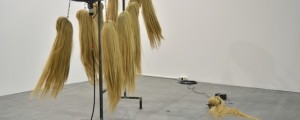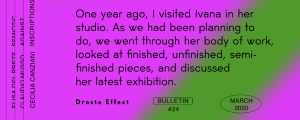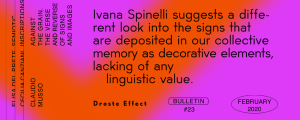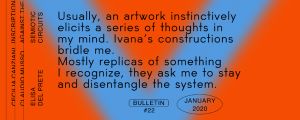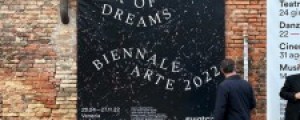Pending Propaganda
The etymology of the word Propaganda comes from the Latin Pro-pagere in which pagere means seed, spread, and the prefix pro means forward, for long.
In digital era, the word propaganda seems to be anachronistic: we don’t have much time for “seeding.” But sometimes things change. A few months ago the Argentinian artists group Gruppo Etcetera spent their residence period for the international participatory art award in Bologna. We were in touch for an interview, but in the end it skipped. One of my questions was about the role of the artist today:
I want talk about the role of the artists today, and I want to do this using Kropotkin’s words:
If your heart really beats in unison with that of humanity, if like a true poet you have an ear for Life, then, gazing out upon this sea of sorrow whose tide sweeps up around you, face to face with these people dying of hunger, in the presence of these many corpses piled up in these mines, and these mutilated bodies lying in heaps on the barricades, in full view of the desperate battle which is being fought, amid the cries of pain from the conquered and the orgies of the victors, of heroism in conflict with cowardice, of noble determination face to face with contemptible cunning—you cannot remain neutral. You will come and take the side of the oppressed because you know that the beautiful, the sublime, the spirit of life itself are on the side of those who fight for light, for humanity, for justice . . . if your heart really beats in unison with that of humanity, if like a true poet you have an ear for Life, then, gazing out upon this sea of sorrow whose tide sweeps up around you, face to face with these people dying of hunger, in the presence of these many corpses piled up in these mines, and these mutilated bodies lying in heaps on the barricades, in full view of the desperate battle which is being fought, amid the cries of pain from the conquered and the orgies of the victors, of heroism in conflict with cowardice, of noble determination face to face with contemptible cunning—you cannot remain neutral. You will come and take the side of the oppressed because you know that the beautiful, the sublime, the spirit of life itself are on the side of those who fight for light, for humanity, for justice!
I took these words from Appeal to the Young, but at the end of XIX century it was common for anarchist philosophers to suggest strategy of intervention. The Propaganda of the deed was one of the anarchist strategies of struggle. Now, I would like to know if your actions could be XXI century Propaganda of the deed, or you rather feel more in connection with the Happening’s culture of the 1970′s?
I would like to use this consideration, coming from Kropotkin, to talk about Marina Naprushkina’s Office for Anti-Propaganda founded by Marina Naprushkina in 2007. The Office produces an archive of videos, texts and picture material on the subject of political propaganda. The focus is on Belarus. The Office for Anti-Propaganda is the result of long-standing work in gathering and archiving the original propaganda material and the works of the artists. It is shown in the form of an installation with an archive, which every viewer can use. The works demonstrate how state authority affects society, and transforms democracy into an illusion for those living under the persistent hegemony of the ruling network. The Office participates and organizes political actions, publishes newspapers “Convincing victory” in 2011 and “Self governing” in 2011-… which are distributed in Belarus and around the world.

Office for Anti-Propaganda, 2011 Installation view “Opening the Door? Belarus Art Today”, Zacheta, Warszawa National Gallery(PL)
The Office is an example of long time project. It is possible thanks to the research work of an artist, thanks to the spread power of the Internet, and thanks to an old propaganda’s language.
Naprushkina focuses her research on the actual social and political events in her native Belarus. She protests (actively – like the 7th Curators of Berlin Biennale sustains – the artist is interested in strengthening the social impact of art, in order to manifest their responsibility towards the processes of social change) against rigged presidential elections, against repression of protests by president Lukashenko. Naprushkina began to use the tactics of direct action – as anarchist Propaganda of the deed wished at the end of XIX century – she collaborated with Nash Dom, an illegal nongovernmental Belarus organization to spread (seed) printed materials that Naprushkina produces. And about art? Naprushkina says: Many won’t recognize any art in my activities with the Office. And some expect more political commitment from me. Still others are interested in learning “terrible things” about the dictatorial regime in Belarus: it provides one with the comforting feeling that hell is elsewhere…
Naprushkina’s activity is something concrete, a real deed, her interpretation of the role of artist is something different from the “artivist.” Art is for Naprushkina something for which to fight, she aims to reject the privatistic dimension of common reality, transforming all the problems in public problems.
For more info:
http://office-antipropaganda.com/wordpress/
http://www.berlinbiennale.de/blog/en/1st-6th-biennale/7th-berlin-biennale
by Vincenzo Estremo
in Focus on Europe
Oct 22, 2013












